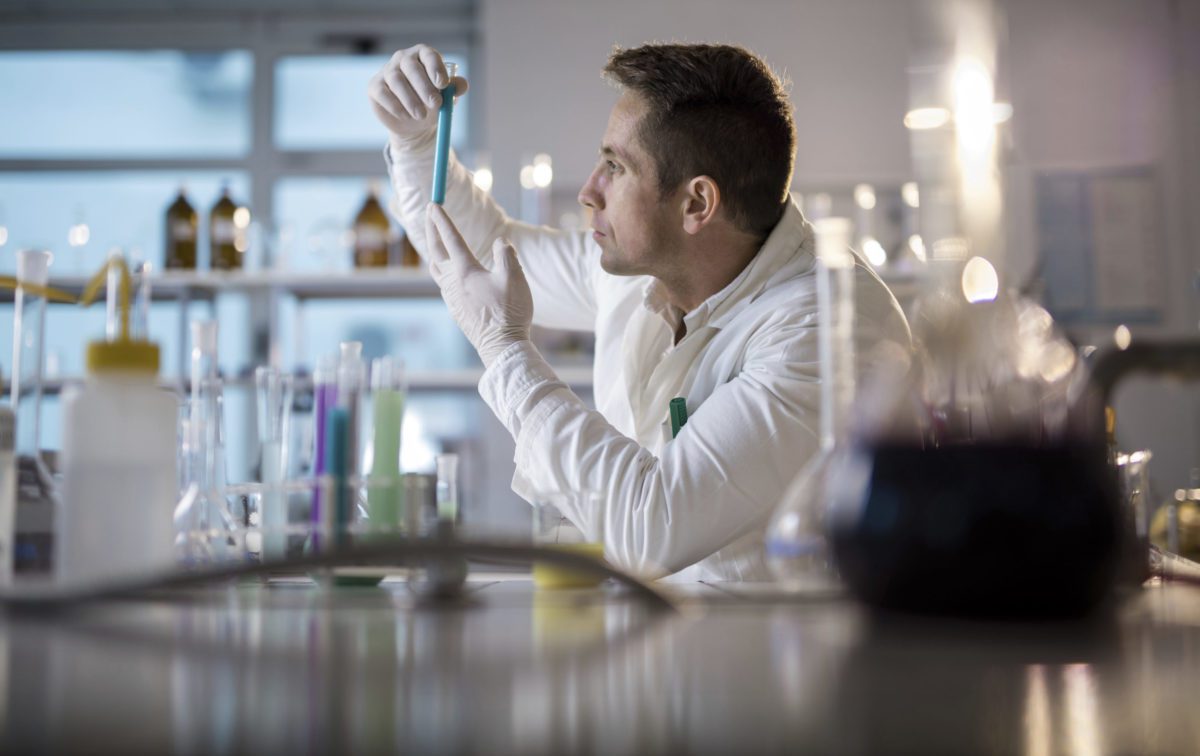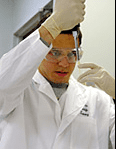
As California native, Michael Bragin was no stranger to biotechnology. He had worked and attended school in what many consider to be the birthplace of biotech—San Francisco. He also gained significant business experience in biotech at CIBC World Markets’ Healthcare Investment Banking Division in Menlo Park, Calif., where he helped chalk up more than $1.25 billion dollars in transactions relating to the life sciences.

So when Bragin set his sights on a graduate degree in biotech, you’d think he might have selected one of the Golden State’s prestigious university programs in the field. Instead, he chose the Master of Science in Biotechnology program at the University of Wisconsin-Madison.
“What sets the UW program apart from others is the all-encompassing approach to business, science, law, and ethics,” Bragin says. “My goal was to go beyond looking at the financials of a company, but I didn’t know anything about the sciences, and that’s a distinct disadvantage in the biotech marketplace of today. I wanted to have a lot of feathers in my cap by improving my knowledge of technology, science, and business.”
The Master of Science in Biotechnology program focuses on product development and technology-based entrepreneurship, combining the study of science, law, and business. It’s a multidisciplinary program geared toward working professionals, including practicing scientists, technical professionals, attorneys, and business people looking to advance their careers in biotechnology.
To accommodate busy schedules, the program offers classes on evenings and weekends. Instructors include UW-Madison faculty and leaders in the biotechnology field from private industry in the Madison region.
‘A fertile ground for learning’
The Master of Science in Biotechnology program strengthened Bragin’s theoretical understanding of scientific principles. He found he could immediately apply what he learned in practical settings, and he gained a new appreciation for the process of commercializing products.
“The direct applications to the biotech world expanded my universe,” he says. “We had a pilot lab where we escorted a product from preclinical to commercialization, and we also did a presentation and target product profile. It was a fertile ground for learning.”
Since graduating from the program, Bragin has met many of his professional goals. His first career move found him developing and executing licensing and acquisition strategies for Boston Healthcare. Following that, he spent nearly three years as an independent consultant, providing expertise in strategic planning and market and technology assessment. He managed a global forecasting team and processes for Stiefel, the global dermatology center for GlaxoSmithKline, then became the senior manager for global commercial opportunity assessment for Teva Specialty Pharmaceuticals.
“Business, science, and finance—it all came together for me because of the graduate program at UW-Madison,” Bragin says. “Besides better understanding the confluence of factors that make up the biotech industry, I gained something else. It’s harder to quantify, but it’s a real-world benefit. That’s the confidence factor. It’s an absolutely crucial factor if you’re a biotechnology consultant in the ever-changing world of science and business.”
For more information on UW-Madison’s Master of Science in Biotechnology program, see here.